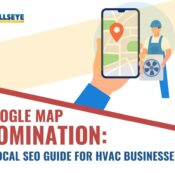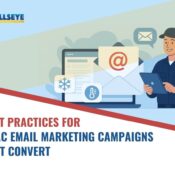
Dominate the Synthetic Turf Market – Elevate Your Marketing Game Today!
Dominate the synthetic turf market with powerful synthetic turf marketing strategies that boost brand awareness, drive sales, and grow your business. Discover proven tactics including artificial grass SEO, digital marketing, and targeted promotions to elevate your marketing game. Start today.
Call Now For The Expert Digital Marketing Solutions: 561-277-0148
Introduction
In the ever-expanding world of landscaping and outdoor design, Synthetic Turf Marketing has become a critical tool for businesses looking to dominate the synthetic turf market. With the rise of synthetic grass products in residential, commercial, and sports applications, companies are realizing that it’s not enough to simply have a great product — they need to strategically position themselves in the market.
As consumers become more environmentally conscious and seek low-maintenance, durable solutions, synthetic turf is becoming the preferred choice for many. However, the market is growing increasingly competitive, and without the right marketing strategy, even the best turf business might struggle to stand out.
This blog will explore the key strategies for effective Synthetic Turf Marketing that can elevate your business, help you reach the right audience, and ultimately boost your sales. Whether you’re new to the synthetic turf industry or looking to scale up your efforts, the following strategies are essential for standing out and capturing your share of the market.
The Turf Market: Understanding the Landscape and Its Growth Potential
Before diving into the specifics of Synthetic Turf Marketing, it’s important to understand the landscape of the synthetic turf market. The market for synthetic grass has seen tremendous growth in recent years, driven by several factors:
- Environmental Benefits: Synthetic grass offers water conservation, reduced maintenance costs, and sustainability benefits that appeal to both commercial and residential customers.
- Durability: Synthetic turf is low-maintenance and can last for years, making it an attractive investment for those looking for long-term solutions.
- Versatility: From residential lawns to sports fields and playgrounds, synthetic grass is being used in a variety of applications, making it a highly versatile product.
With such a broad appeal, the Turf Market Growth is expected to continue in the coming years. According to recent market studies, the demand for synthetic grass is projected to increase significantly, driven by advancements in technology and more eco-conscious consumer behaviors. To capitalize on this growth, businesses must not only provide high-quality turf products but also leverage effective Synthetic Turf Marketing strategies that align with current trends and customer needs.
Crafting the Right Turf Market Strategies for Your Business
To effectively dominate the synthetic turf market, businesses need to adopt targeted Turf Market Strategies that focus on customer acquisition, brand awareness, and retention. Here are some key strategies to consider:
- Targeting the Right Audience: Understanding your ideal customer is critical. For example, residential customers might be more focused on aesthetics and water conservation, while commercial clients may prioritize durability and low maintenance. Tailoring your marketing message to each audience segment ensures you’re addressing their specific needs.
- Local SEO: Local SEO is a powerful tool for turf businesses that rely on local clientele. By optimizing your website for local search terms (such as “synthetic grass in [your city]”), you can capture leads from nearby customers who are actively searching for turf solutions.
- Content Marketing: Offering informative blog posts, videos, and case studies can educate potential customers about the benefits of synthetic turf and your unique offerings. This builds trust and positions your company as an authority in the field.
Artificial Grass SEO: Boosting Your Online Presence for Turf Success
In today’s digital age, Artificial Grass SEO is a must for businesses in the synthetic turf industry. When done correctly, SEO (Search Engine Optimization) helps your website rank higher on search engine results pages, making it easier for potential customers to find you.
To get started with Artificial Grass SEO, focus on the following key areas:
- Keyword Research: Start by researching keywords relevant to synthetic turf, such as “artificial grass,” “synthetic turf installation,” and location-based terms like “artificial grass in [city].” Use these keywords strategically on your website, blog posts, and product pages.
- On-Page SEO: Ensure your website is optimized for SEO by incorporating relevant keywords into title tags, meta descriptions, header tags, and body content. Make sure your website is mobile-friendly and has fast load times, as these are crucial ranking factors.
- Off-Page SEO: Build high-quality backlinks from reputable sites in the turf, landscaping, and home improvement industries. This helps build your website’s authority and credibility in the eyes of search engines.
By investing in Artificial Grass SEO, you can increase your online visibility, drive organic traffic to your website, and ultimately generate more leads for your business.
Harnessing the Power of Turf Digital Marketing
Turf Digital Marketing is another essential component of a successful synthetic turf business strategy. Digital marketing allows you to engage with potential customers through online channels, including social media, email marketing, and online advertising. Here’s how to make the most of these platforms:
- Social Media: Platforms like Instagram, Facebook, and Pinterest are ideal for showcasing your synthetic turf installations and engaging with potential customers. Share high-quality images of completed projects, customer testimonials, and educational content about the benefits of synthetic turf.
- Google Ads: Paid advertising through Google Ads can help you target customers actively searching for synthetic turf products and services. With precise targeting and keyword bidding, you can drive traffic to your website and increase your chances of converting visitors into customers.
- Email Marketing: Build an email list of past customers and potential leads, and send out regular newsletters with promotions, product updates, and educational content. Email marketing helps maintain a relationship with your audience and encourages repeat business.
By leveraging Turf Digital Marketing techniques, you can effectively reach your target audience, raise awareness for your brand, and increase sales.
Effective Turf Business Advertising to Stand Out in the Market
Effective Turf Business Advertising is all about ensuring that your brand reaches the right people at the right time. Whether you are using traditional methods like print ads or leveraging digital tools like Google Ads, the goal is to communicate your unique selling points clearly and persuasively.
- Paid Advertising: Pay-per-click (PPC) campaigns on search engines or social media platforms can give your business the visibility it needs in a crowded marketplace. Focus on targeting individuals who are specifically looking for synthetic turf solutions, and craft compelling ads that highlight the key benefits of your products.
- Local Partnerships: Partnering with local businesses, real estate agents, or landscape designers can help boost your visibility and increase your customer base. Consider offering special promotions or co-marketing opportunities that align with your target audience’s interests.
- Trade Shows and Events: Participating in trade shows and events is a great way to showcase your products, network with potential clients, and establish your brand in the industry.
Synthetic Grass Promotion: Getting Your Product in Front of the Right Audience
Promoting your synthetic grass products requires a deep understanding of your target market and how to effectively reach them. Synthetic Grass Promotion can include:
- Influencer Marketing: Collaborating with social media influencers, particularly in the home improvement, landscaping, and eco-friendly spaces, can help you gain exposure and credibility among your target audience.
- Content Marketing: As mentioned earlier, creating educational content, such as blog posts, tutorials, and videos, can serve as a great promotional tool. The more value you provide to your audience, the more likely they are to trust your brand and consider your products.
- Referral Programs: Encourage satisfied customers to refer friends and family by offering incentives such as discounts or free services. Word-of-mouth referrals are incredibly valuable in the turf industry.
Maximizing Artificial Turf Leads with Effective Conversion Strategies
Generating Artificial Turf Leads is only part of the process; the next challenge is converting those leads into sales. To maximize conversions, focus on the following strategies:
- Lead Nurturing: Once you’ve captured a lead, nurture them with personalized emails, exclusive offers, and follow-up calls to keep them engaged and move them through the sales funnel.
- Clear Call-to-Action: Your website and landing pages should have clear, compelling calls to action (CTAs) that encourage visitors to take the next step, whether it’s scheduling a consultation, requesting a quote, or making a purchase.
- Customer Testimonials: Displaying positive reviews and testimonials on your website and social media channels can help build trust and encourage potential customers to leap.
The Importance of Synthetic Grass Branding in a Competitive Market
Building a strong Synthetic Grass Branding strategy is crucial for differentiating your business from competitors. In a crowded market, a recognizable and trustworthy brand can make all the difference in attracting customers. Focus on the following elements:
- Consistent Messaging: Ensure that your brand message is clear and consistent across all platforms, from your website to social media and advertisements. This helps create a cohesive and professional brand image.
- Logo and Visual Identity: Your logo, color scheme, and website design should reflect the quality and values of your business. A strong visual identity makes your brand more memorable and recognizable.
- Customer Experience: Providing exceptional customer service, easy navigation on your website, and fast response times are key to building a positive brand reputation.
Enhancing Artificial Lawn Sales with Targeted Marketing Campaigns
Finally, boosting Artificial Lawn Sales requires targeted marketing campaigns designed to convert potential customers into buyers. Strategies like segmenting your customer base, personalizing offers, and running special promotions during peak seasons can all help drive sales and increase revenue.
Conclusion: Elevating Your Turf Marketing Game for Long-Term Success
To dominate the synthetic turf market, businesses need a comprehensive Synthetic Turf Marketing strategy that includes SEO, digital marketing, content creation, and effective advertising. By leveraging the right Turf Market Strategies and focusing on building a strong brand presence, you can attract customers, generate leads, and ultimately increase sales.




